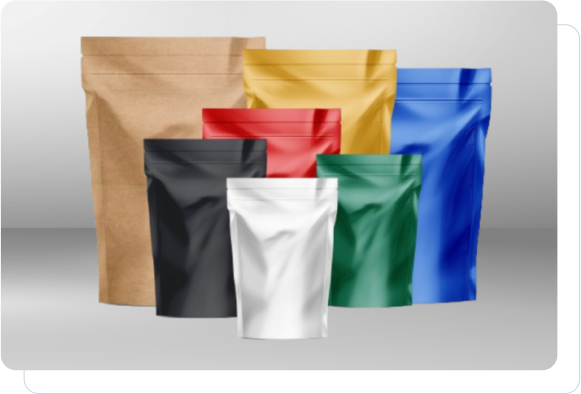Flexible packaging accounts for nearly 60% of the global packaging market for food products, according to industry reports. Its dominance isn't just about convenience—this versatile solution helps reduce food waste, extends shelf life, and even cuts shipping costs. It’s no surprise that industries across the board are investing heavily in this innovative packaging.
Take PepsiCo, for example. Through their Performance with Purpose initiative, they redesigned packaging for snacks like Lay’s chips, using thinner films that reduced material usage by 25%, saving millions of tons of plastic each year. This simple change not only cut costs but also aligned with global efforts to combat waste and reduce carbon footprints.
This story is just the beginning. Flexible packaging has transformed industries—from food and cosmetics to pharmaceuticals and e-commerce—offering solutions tailored to diverse needs while embracing sustainability. But how exactly does it impact each sector, and why are businesses turning to it as their packaging solution of choice? Let’s explore.
1. Flexible Packaging in the Food and Beverage Industry
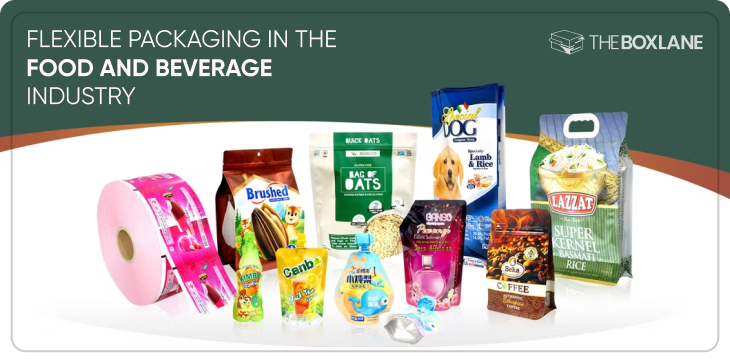
Enhancing Freshness and Shelf Appeal
The food and beverage industry remains the largest consumer of flexible packaging, accounting for over 60% of the global market. Why? Because it excels at preserving product freshness, extending shelf life, and enhancing visual appeal. Flexible options like vacuum-sealed pouches, resealable bags, and laminated films protect products from oxygen, moisture, and contamination.
- Applications: Snack bags, juice pouches, frozen food packaging, ready-to-eat meal wrappers.
- Example: Think about those grab-and-go snack packs; they’re lightweight, durable, and easy to open—all thanks to flexible packaging.
Sustainability and Reduced Waste
As consumers demand eco-friendly options, businesses are switching to biodegradable films and recyclable pouches. For instance, Kraft paper and compostable films are replacing single-use plastics in food wraps and pouches, reducing the industry’s carbon footprint.
2. Cosmetics and Personal Care: Packaging That Matches Elegance
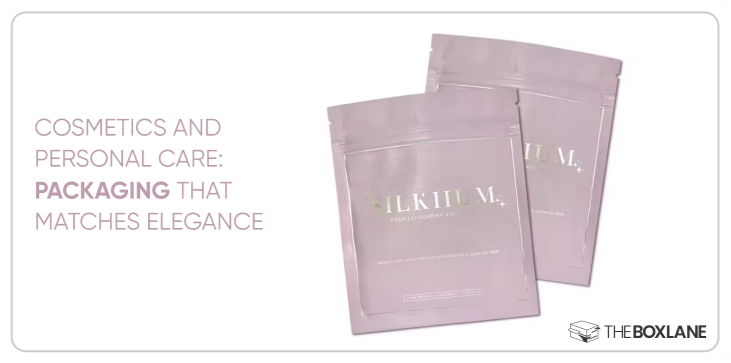
Sophistication Meets Functionality
The cosmetics industry thrives on branding and aesthetics. Flexible packaging, with its sleek, customizable designs, ensures products not only look good but also remain safe and leak-proof.
- Applications: Sachets for shampoo, stand-up pouches for lotion, flow wraps for soap bars.
- Trend: Many brands are adopting luxury flexible pouches that combine metallic finishes with resealable designs.
Eco-Conscious Consumer Appeal
Modern consumers want products that align with their environmental values. Flexible packaging for soap and personal care items increasingly includes biodegradable wrappers and refill pouches, appealing to eco-conscious buyers.
3. Pharmaceuticals: Safe and Sterile Solutions
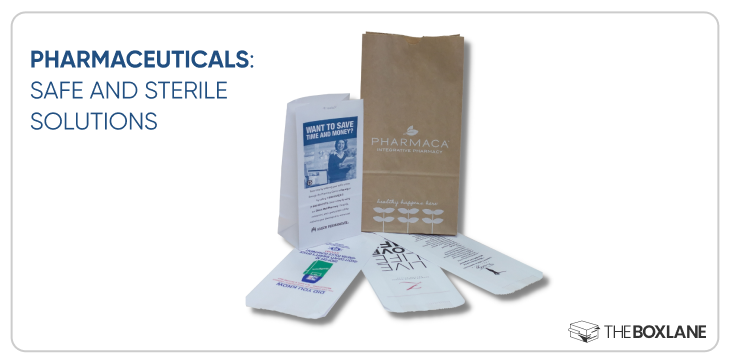
Protection Against Contamination
In pharmaceuticals, packaging isn’t just about convenience; it’s about safety. Flexible packaging offers airtight seals and tamper-evident features, critical for maintaining product integrity.
- Applications: Sachets for powders, blister packs for pills, medical pouches for devices.
- Fact: The global pharmaceutical flexible packaging market is expected to surpass $40 billion by 2028, fueled by demand for single-dose solutions.
Meeting Regulatory Standards
Pharmaceutical companies rely on flexible materials to meet stringent FDA requirements for sterility and labeling, ensuring consumer safety and trust.
4. Homecare Products: Durable and Convenient
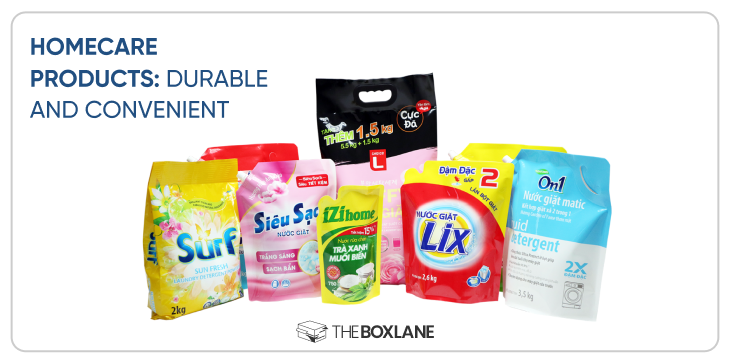
Versatility in Design
Flexible packaging allows brands to create unique designs that stand out on shelves while being practical for customers. For example, spout pouches for detergents and cleaners make dispensing easier and reduce spillage.
- Applications: Stand-up pouches for laundry detergent, sachets for cleaning wipes.
- Example: A household name like Tide offers flexible refill pouches for liquid detergents, reducing plastic usage significantly.
Lightweight and Space-Saving
Unlike rigid bottles, flexible packaging minimizes storage space, both on shelves and during transit. This reduces logistics costs by up to 30%, making it a favorite for budget-conscious brands.
5. Retail and E-Commerce: Enhancing Consumer Experience
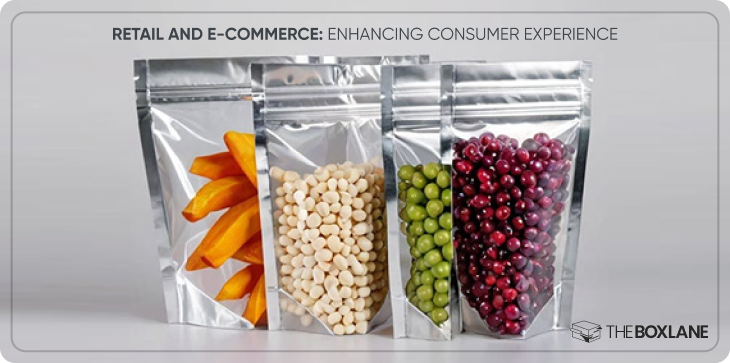
The Rise of Customizable Options
In the retail and e-commerce space, flexible packaging drives customer loyalty by offering convenience and personalization. For instance, online soap sellers often use custom-printed flexible wrappers to reflect their brand identity.
- Applications: Poly mailers, custom flexible soap wraps, resealable pouches for subscription boxes.
- Trend: Retailers are adopting zip-lock designs for easy product storage after delivery.
Addressing Sustainability
Retailers like Amazon are setting sustainability goals, pushing for recyclable mailers and biodegradable options, which are often made from polylactic acid (PLA) or Kraft paper.
6. Industrial Applications: Efficiency and Durability
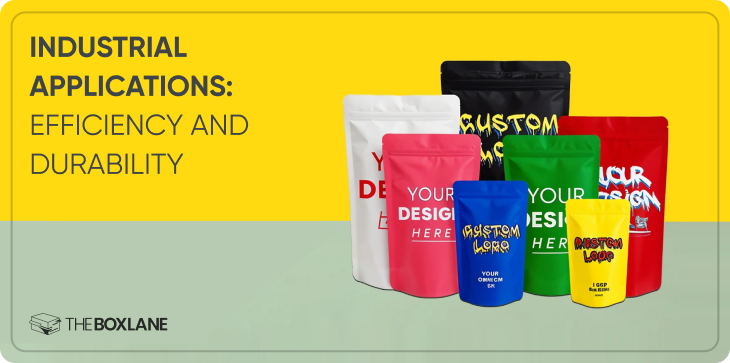
Heavy-Duty Protection
Flexible packaging isn’t limited to consumer goods; industrial sectors also benefit. Flexible films and pouches protect sensitive components from dust, moisture, and UV exposure.
- Applications: Protective covers for machinery, bulk storage liners.
- Example: Large-scale manufacturers use multi-layer films to store chemicals and raw materials securely.
Cost-Efficiency in Bulk Packaging
Industrial products often require packaging that can withstand extreme conditions. Flexible options like laminated films are lightweight yet durable, reducing transportation costs while ensuring product safety.
7. Sustainability Across Industries
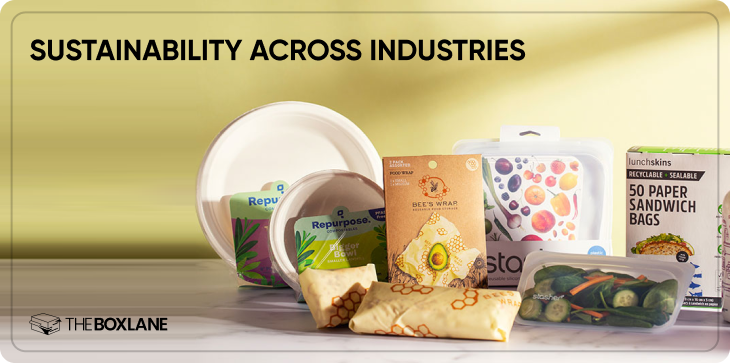
The Green Revolution
Across all industries, the push for sustainable packaging solutions is more urgent than ever. Flexible packaging manufacturers are exploring innovative materials like:
- Compostable films: Made from starch-based polymers.
- Recyclable multi-layer films: Offer durability without compromising the environment.
Meeting Consumer Expectations
A 2023 survey revealed that 74% of consumers prefer sustainable packaging, influencing brands to adopt biodegradable pouches and recyclable sachets.
Conclusion
Flexible packaging isn’t just an option; it’s the smart choice for businesses across industries. Its versatility, cost-efficiency, and sustainability make it indispensable in today’s competitive market. Whether you’re a food brand looking to extend shelf life, a cosmetics company aiming for elegant yet functional designs, or a retailer embracing e-commerce trends, flexible packaging has a solution tailored for you.
As industries continue to innovate, one thing is clear: flexible packaging is here to stay, leading the way in convenience, functionality, and eco-consciousness.


